[vc_row][vc_column][vc_single_image image=”949″ img_size=”full” alignment=”center”][vc_custom_heading text=”“A Piece of My Mind”” font_container=”tag:h1|font_size:50px|text_align:center|color:%232633ef” google_fonts=”font_family:Bitter%3Aregular%2Citalic%2C700|font_style:700%20bold%20regular%3A700%3Anormal”][vc_custom_heading text=”November 2017 Newsletter” font_container=”tag:h1|font_size:30px|text_align:center|color:%232633ef” google_fonts=”font_family:Bitter%3Aregular%2Citalic%2C700|font_style:700%20bold%20regular%3A700%3Anormal”][/vc_column][/vc_row][vc_row][vc_column width=”2/3″][vc_column_text]
Advancing Christian Faith and Values,
Defending Religious Liberty for All,
Supporting Civility and the Common Good
through Preaching, Teaching, Writing, Activism and Reasoned Conversations
www.donaldshoemakerministries.com[/vc_column_text][/vc_column][vc_column width=”1/3″][vc_single_image image=”687″ img_size=”full” alignment=”center”][/vc_column][/vc_row][vc_row][vc_column][vc_custom_heading text=”October 31, 2017 – 500th Anniversary of the Protestant Reformation” font_container=”tag:h1|font_size:30px|text_align:center|color:%232633ef” google_fonts=”font_family:Bitter%3Aregular%2Citalic%2C700|font_style:700%20bold%20regular%3A700%3Anormal”][/vc_column][/vc_row][vc_row][vc_column width=”1/2″][vc_single_image image=”1029″ img_size=”full”][/vc_column][vc_column width=”1/2″][vc_column_text]In full support of the Church, the Pope and Archbishop Albrecht, an Augustinian monk by the name of Martin Luther posted his “95 Theses” against the sale of Indulgences and other abuses on the door of the Wittenberg church on October 31, 1517.
Little did he realize how great a fire a little candle would ignite![/vc_column_text][/vc_column][/vc_row][vc_row][vc_column][vc_custom_heading text=”The Protestant Reformation at 500″ font_container=”tag:h1|font_size:30|text_align:center|color:%23111111″][vc_custom_heading text=”1517 – 2017″ font_container=”tag:h3|font_size:20|text_align:center|color:%23141414″][vc_custom_heading text=”Lessons from the Reformation #4″ font_container=”tag:h3|font_size:20|text_align:center|color:%23161616″][vc_custom_heading text=”Martin Luther Posts the “95 Theses”” font_container=”tag:h2|font_size:20|text_align:center|color:%23161616″][vc_column_text]

Well, before you make this dramatic event second only to Moses descending the Mount with the tablets of God’s Law in hand, please know that some legends have grown in the tellin’ of the story!
The theses themselves may not have been posted on October 31, and not by Luther using a hammer. What was posted may have been placed there by the church custodian, using glue.
But the truth of the story shines through any traditions or legends.
Johannes Tetzel would rival any hairsprayed “Health and Wealth” televangelist of our day. His brazen sale of Indulgences, promising a soul’s remission from purgatory, are captured in the sales pitch, “As soon as a coin in the coffer rings, the soul from purgatory springs.” It’s hard to imagine a religious huckster today coming up with anything more clever than that.
Martin Luther was appalled by Tetzel’s teaching and tactics. Luther’s theses, written in Latin, were a call to theologians for a discussion of Indulgences and other abuses rather than a message to the public. Luther wanted to generate serious theological debate, not ignite a religious revolt.
The Theses also went to Archbishop Albrecht of Mainz, whose honor Luther sought to protect—Luther not knowing at the time that the archbishop was “on the take” for half of the money raised from the sales. The other half went to Rome for construction of the majestic St. Peter’s Basilica.
But soon Luther’s words spread. The Reformation might not have happened without that recent invention, the printing press. The Ninety-five Theses or Disputation on the Power of Indulgences were mass-produced, translated in to German, then into English. The genie was out of the bottle!
“Sola Scriptura” opens us up to God’s written communication. In it we find truth and life and hope and direction. In it we encounter Jesus.
Here are some of the key theses, in my opinion:
1. When our Lord and Master Jesus Christ said, “Repent” (Matthew 4:17), he willed the entire life of believers to be one of repentance.
5. The pope neither desires nor is able to remit any penalties except those imposed by his own authority or that of the canons.
6. The pope cannot remit any guilt, except by declaring and showing that it has been remitted by God; or, to be sure, by remitting guilt in cases reserved to his judgment. If his right to grant remission in these cases were disregarded, the guilt would certainly remain unforgiven.
21. Thus those indulgence preachers are in error who say that a man is absolved from every penalty and saved by papal indulgences.
27. They preach only human doctrines who say that as soon as the money clinks into the money chest, the soul flies out of purgatory.
28. It is certain that when money clinks in the money chest, greed and avarice can be increased; but when the church intercedes, the result is in the hands of God alone.
32. Those who believe that they can be certain of their salvation because they have indulgence letters will be eternally damned, together with their teachers.
37. Any true Christian, whether living or dead, participates in all the blessings of Christ and the church; and this is granted him by God, even without indulgence letters.
43. Christians are to be taught that he who gives to the poor or lends to the needy does a better deed than he who buys indulgences.
45. Christians are to be taught that he who sees a needy man and passes him by, yet gives his money for indulgences, does not buy papal indulgences but God’s wrath.
46. Christians are to be taught that, unless they have more than they need, they must reserve enough for their family needs and by no means squander it on indulgences.
50. Christians are to be taught that if the pope knew the exactions of the indulgence preachers, he would rather that the basilica of St. Peter were burned to ashes than built up with the skin, flesh, and bones of his sheep.
94. Christians should be exhorted to be diligent in following Christ, their Head, through penalties, death and hell.
95. And thus be confident of entering into heaven through many tribulations rather than through the false security of peace (Acts 14:22).
You may read the 95 Theses at: http://www.luther.de/en/95thesen.html
Recommended reading: Martin Luther by Eric Metaxas (Viking, 2017)[/vc_column_text][vc_row_inner][vc_column_inner][vc_custom_heading text=”The Protestant Reformation at 500″ font_container=”tag:h1|font_size:30|text_align:center”][vc_custom_heading text=”1517 – 2017″ font_container=”tag:h3|font_size:20|text_align:center”][vc_custom_heading text=”Lessons from the Reformation #5″ font_container=”tag:h3|font_size:20|text_align:center”][vc_column_text]
 Reformation Thanksgiving A Song During Suffering
Reformation Thanksgiving A Song During Suffering
“Now Thank We All Our God” – Martin Rinkart (1586-1649)
[/vc_column_text][vc_column_text]Martin Rinkart was a Lutheran clergyman and hymn writer. He served in the city of Eilenburg during the terrible Thirty Years’ War (1618-48) and the plague of 1637. The Thirty Years’ war was destructive and deadly throughout Central Europe. It resulted in eight million casualties.
The war started as a conflict between Protestant and Catholic states in the Holy Roman Empire when the new emperor, Ferdinand II, attempted to impose religious uniformity (Roman Catholicism) throughout the empire, including in the Protestant states. The war morphed into a conflict having less to do with religion and more to do with rivalry over who would be the dominant power in Europe.
(It’s hard for Americans to grasp the church-state connectedness that would generate religious wars. When my wife and I were in Europe in 2014 we were amazed by the knight armor displayed in sanctuaries. Europe for centuries had this connectedness. Bear in mind that Ottoman armies conquered Constantinople in 1453 AD and were besieging the city of Vienna in 1529, while the Reformation was getting under way. These sieges were, in one real sense, conflicts between Muslims and Christians.)
Rinkart wrote his magisterial thanksgiving hymn “Now Thank We All Our God” around 1636 during the heat of war. He eventually was the only clergyman alive and remaining in Eilenburg to minister to people in their suffering and hunger, sometimes performing multiple funerals in a single day.
“Shall we accept good from God, and not trouble?” asked the biblical patriarch Job in the midst of his many afflictions (Job 2:10). I think the faith of Job and of Martin Rinkart to be greater than my own when I read the latter’s encouraging call to Thanksgiving prayer:[/vc_column_text][vc_column_text]
Now thank we all our God, with heart and hands and voices,
Who wondrous things has done, in Whom this world rejoices;
Who from our mothers’ arms has blessed us on our way
With countless gifts of love, and still is ours today.
O may this bounteous God through all our life be near us,
With ever joyful hearts and blessed peace to cheer us;
And keep us in His grace, and guide us when perplexed;
And free us from all ills, in this world and the next!
Words by Martin Rinkart (c.1636)
Melody by Johann Cruger (1647)
Harmony by Felix Mendelsohn (1840)
Translation into English by Catherine Winkworth (1856)
[/vc_column_text][/vc_column_inner][/vc_row_inner][vc_row_inner][vc_column_inner][vc_column_text]
 A Psalm for Thanksgiving Season
A Psalm for Thanksgiving Season
(Psalm 106:1-5 English Standard Version)
O give thanks to the Lord, for he is good,
for his steadfast love endures forever!
Who can utter the mighty deeds of the Lord,
or declare all his praise?
Blessed are they who observe justice,
who do righteousness at all times!
Remember me, O Lord, when you show favor to your people;
help me when you save them,
that I may look upon the prosperity of your chosen ones,
that I may rejoice in the gladness of your nation,
that I may glory with your inheritance.
[/vc_column_text][/vc_column_inner][/vc_row_inner][vc_row_inner][vc_column_inner][vc_custom_heading text=”Bible Insight – Is it ever OK to steal?” font_container=”tag:h1|font_size:22|text_align:left|color:%233342e0″][vc_custom_heading text=”(Or, are there times when it’s right to put what belongs to
“the owner” into the service of “The Owner”?)” font_container=”tag:h4|text_align:left|color:%233342e0″][vc_column_text]
If you go into your neighbor’s vineyard, you may eat your fill of grapes, as many as you wish, but you shall not put any in your bag. If you go into your neighbor’s standing grain, you may pluck the ears with your hand, but you shall not put a sickle to your neighbor’s standing grain. – Deuteronomy 23:24-25
During the terrible massacre in Las Vegas this heroic story emerged:
A U.S. Marine vet helped rescue more than a dozen people during the Las Vegas shooting attack Sunday with quick thinking he credited to his military training.
[/vc_column_text][vc_column_text] Taylor Winston, 29, stole a utility pickup truck [emphasis mine] he found on the concert grounds and transported several injured people to the hospital before ambulances could arrive on the scene. The vet said they ran for cover and hopped a fence to get to safety. Once he landed on the other side, he said he reportedly saw a bunch of white trucks.
Taylor Winston, 29, stole a utility pickup truck [emphasis mine] he found on the concert grounds and transported several injured people to the hospital before ambulances could arrive on the scene. The vet said they ran for cover and hopped a fence to get to safety. Once he landed on the other side, he said he reportedly saw a bunch of white trucks.
“I tested my luck to see if any of them had keys in it, first one we tried opening had keys sitting right there,” he said. “I started looking for people to take to the hospital. There was just too many and it was overwhelming how much blood was everywhere.”
Winston and his friend reportedly made two trips to Desert Springs Hospital Medical Center, squeezing “probably 20 to 30” victims in the backseat and in the bed of the truck. The vet reportedly returned the truck, parking it a few blocks away from the venue.
And a local truck dealer gave this marine veteran a new Ford 150!
Good! This to me is a clear example of justly putting what belongs to “the owner” into the service of “The Owner.” Our right to enjoy what is ours and not have it stolen from us is clear in the Bible. Equally clear and more fundamental is the truth that God is the ultimate owner of all.
“All the earth is mine” God says (Exodus 19:5).
“For every beast of the forest is mine,
the cattle on a thousand hills.
I know all the birds of the hills,
and all that moves in the field is mine.
If I were hungry, I would not tell you,
for the world and its fullness are mine.”
– Psalm 50:10-12
The blessings of creation are “ours” in a secondary sense. What we “own” is by divine assignment. And what is “ours” must not to be unjustly taken.
“You shall not steal” (Exodus 19:15) is one of the Ten Commandments.
But what we possess is always subject to God’s moral will and providence. The produce of the orchards and fields belong to the owner, but not to the extent that the hungry cannot pick some fruit or the poor cannot glean the grain left behind by the threshers (Deuteronomy 23:24-25; Leviticus 23:22).
It is a good thing to put God’s resources to work in saving human lives or mitigating hunger. On ordinary days we save life and feed others by ordinary means. But in critical situations caring for people in great distress by any reasonable and available means is the just thing to do. Am I correct in this?
“Which one of you who has a sheep, if it falls into a pit on the Sabbath, will not take hold of it and lift it out? Of how much more value is a man than a sheep! So it is lawful to do good on the Sabbath.” – Jesus (Matthew 12:11-12)
So I salute the marine veteran who did what he needed to do that terrible evening in Las Vegas. From an ethics standpoint, he did not steal. He returned the truck to where he found it, but took the keys and forgot his hat. The owner, Phelps Amelsberg, posted, “I am not mad. Would do the same thing… Like my keys back please. I don’t even care that the back seats [are] ruined. Will buy you dinner and give you your cowboy hat back.”
While I’m glad Mr. Winston received a free truck, I wish a generous auto dealer in Vegas had restored Mr. Amelsberg’s truck for free. The work of cleaning and repairing must have been extensive.
[/vc_column_text][/vc_column_inner][/vc_row_inner][vc_row_inner][vc_column_inner][vc_empty_space][vc_column_text]
 Religious Liberty Vigilance
Religious Liberty Vigilance
“Congress shall make no law respecting an establishment of religion, or prohibiting the free exercise thereof, or abridging the freedom of speech, or of the press; or the right of the people peaceably to assemble, and to petition the Government for a redress of grievances.” – 1st Amendment
[/vc_column_text][vc_empty_space][/vc_column_inner][/vc_row_inner][/vc_column][/vc_row][vc_row css=”.vc_custom_1509469357289{background-color: #26efe2 !important;}”][vc_column][vc_custom_heading text=”Victory for Religious Freedom
Governor Jerry Brown VETOES Assembly Bill 569
” font_container=”tag:h2|text_align:center|color:%232825e8″][vc_column_text]
This bill would have marked a great governmental intrusion into the free exercise of religion by preventing churches and religious organizations from requiring moral codes on their employees according to the dictates of their faith.
In his veto message to the State Assembly, Governor Brown said, “Assembly Bill 569 would add to the labor code a prohibition against any employer from taking action against an employee because of that employee’s reproductive decisions.
“The California Fair Employment and Housing Act has long banned such adverse actions, except for religious institutions. I believe these types of claims should remain within the jurisdiction of the Department of Fair Employment and Housing.” [emphasis mine]
[/vc_column_text][vc_empty_space][/vc_column][/vc_row][vc_row css=”.vc_custom_1509470417231{background-color: #ffffff !important;}”][vc_column][vc_row_inner][vc_column_inner][vc_empty_space][vc_custom_heading text=”Federal Guidelines Protecting Religious Liberty” font_container=”tag:h2|font_size:30|text_align:center|color:%23000000″][vc_column_text]On October 6, the federal Office of the Attorney General issued twenty guidelines interpreting religious liberty protections found in federal law. Critics blast them as outrageous and discriminatory. I think they are reasonable, necessary and (most important) constitutional.
Religious liberty is a foundational principle of enduring importance in America, enshrined in our Constitution and other sources of federal law. As James Madison explained in his Memorial and Remonstrance Against Religious Assessments, the free exercise of religion “is in its nature an unalienable right” because the duty owed to one’s Creator “is precedent, both in order of time and in degree of obligation, to the claims of Civil Society.”
Religious liberty is not merely a right to personal religious beliefs or even to worship in a sacred place. It also encompasses religious observance and practice. Except in the narrowest circumstances, no one should be forced to choose between living out his or her faith and complying with the law. Therefore, to the greatest extent practicable and permitted by law, religious observance and practice should be reasonably accommodated in all government activity, including employment, contracting, and programming.
The following twenty principles should guide administrative agencies and executive departments:
1. The freedom of religion is a fundamental right of paramount importance, expressly protected by federal law.
2. The free exercise of religion includes the right to act or abstain from action in accordance with one’s religious beliefs.
3. The freedom of religion extends to persons and organizations.
4. Americans do not give up their freedom of religion by participating in the marketplace, partaking of the public square, or interacting with government.
5. Government may not restrict acts or abstentions because of the beliefs they display.
6. Government may not target religious individuals or entities for special disabilities based on their religion.
7. Government may not target religious individuals or entities through discriminatory enforcement of neutral, generally applicable laws.
8. Government may not officially favor or disfavor particular religious groups.
9. Government may not interfere with the autonomy of a religious organization.
10. The Religious Freedom Restoration Act of 1993 prohibits the federal government from substantially burdening any aspect of religious observance or practice, unless imposition of that burden on a particular religious adherent satisfies strict scrutiny.
11. RFRA’s protection extends not just to individuals, but also to organizations, associations, and at least some for-profit corporations.
12. RFRA does not permit the federal government to second-guess the reasonableness of a religious belief.
13. A governmental action substantially burdens an exercise of religion under RFRA if it bans an aspect of an adherent’s religious observance or practice, compels an act inconsistent with that observance or practice, or substantially pressures the adherent to modify such observance or practice.
14. The strict scrutiny standard applicable to RFRA is exceptionally demanding.
15. RFRA applies even where a religious adherent seeks an exemption from a legal obligation requiring the adherent to confer benefits on third parties.
16. Title VII of the Civil Rights Act of 1964, as amended, prohibits covered employers from discriminating against individuals on the basis of their religion.
17. Title VIl’s protection extends to discrimination on the basis of religious observance or practice as well as belief, unless the employer cannot reasonably accommodate such observance or practice without undue hardship on the business.
18. The Clinton Guidelines on Religious Exercise and Religious Expression in the Federal Workplace provide useful examples for private employers of reasonable accommodations for religious observance and practice in the workplace.
19. Religious employers are entitled to employ only persons whose beliefs and conduct are consistent with the employers’ religious precepts.
20. As a general matter, the federal government may not condition receipt of a federal grant or contract on the effective relinquishment of a religious organization’s hiring exemptions or attributes of its religious character.
Read the Document at: https://www.justice.gov/opa/press-release/file/1001891/download[/vc_column_text][/vc_column_inner][/vc_row_inner][vc_row_inner css=”.vc_custom_1509469694364{background-color: #ddb3b3 !important;}”][vc_column_inner][vc_column_text]
“There must be some limit to the coercive power of government.”
– Part of Gov. Jerry Brown’s veto message on AB 725, which would have banned smoking in state parks and on state beaches, with a fine of $250.
[/vc_column_text][/vc_column_inner][/vc_row_inner][/vc_column][/vc_row][vc_row][vc_column width=”1/4″][vc_single_image image=”567″ img_size=”full” alignment=”center”][/vc_column][vc_column width=”3/4″][vc_custom_heading text=”Don’s Upcoming Ministries” font_container=”tag:h1|font_size:30px|text_align:left|color:%230316bc”][vc_column_text]November 1-4 – attend meetings of the Chaplain Committee of the Fellowship of Grace Brethren Churches in Washington DC and tour the Pentagon
November 11 (11:00 a.m.) – Participate in Seal Beach’s Veterans Day observance co-sponsored by Grace Community Church and the Lions Club. Meeting at Eisenhower Park by the pier.
November 14 & 17 – Teach on “Be Filled with the Holy Spirit” (Ephesians 5:15-21) at Women Bible Study, Grace Community Church of Seal Beach[/vc_column_text][/vc_column][/vc_row][vc_row][vc_column][vc_column_text]
My Website: www.donaldshoemakerministries.com
Contact me at: donaldshoemakerministries@verizon.net</>
[/vc_column_text][/vc_column][/vc_row]


 “They all plotted together to come and fight against Jerusalem and stir up trouble against it. But we prayed to our God and posted a guard night and day to meet this threat.” – Nehemiah 4:8-9 (New International Version)
“They all plotted together to come and fight against Jerusalem and stir up trouble against it. But we prayed to our God and posted a guard night and day to meet this threat.” – Nehemiah 4:8-9 (New International Version)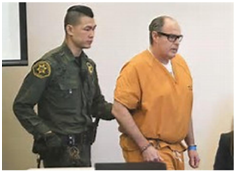 “The gates of hell flew open and you emerged as the face of evil in this community.”
“The gates of hell flew open and you emerged as the face of evil in this community.”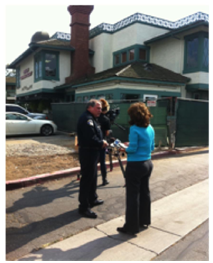 This chapter of the families’ agony is over. But as I told a NBC reporter in 2012, the word “closure” will never be appropriate. There are milestones, but no closures.
This chapter of the families’ agony is over. But as I told a NBC reporter in 2012, the word “closure” will never be appropriate. There are milestones, but no closures. [/vc_column_text][vc_column_text]
[/vc_column_text][vc_column_text] Dr. Wayne S. Flory (1927-2017)
Dr. Wayne S. Flory (1927-2017) [/vc_column_text][/vc_column][vc_column width=”1/2″][vc_column_text]
[/vc_column_text][/vc_column][vc_column width=”1/2″][vc_column_text] [/vc_column_text][/vc_column][/vc_row][vc_row][vc_column][vc_column_text]
[/vc_column_text][/vc_column][/vc_row][vc_row][vc_column][vc_column_text]

 “We hold these truths to be self-evident, that all men are created equal, that they are endowed by their Creator with certain unalienable Rights, that among these are Life, Liberty and the pursuit of Happiness. That to secure these rights, Governments are instituted among Men, deriving their just powers from the consent of the governed.” – Declaration of Independence
“We hold these truths to be self-evident, that all men are created equal, that they are endowed by their Creator with certain unalienable Rights, that among these are Life, Liberty and the pursuit of Happiness. That to secure these rights, Governments are instituted among Men, deriving their just powers from the consent of the governed.” – Declaration of Independence Burgess was interrupted by socialist councilmember Kshama Sawant. She rebuked his “Republican friends” comment and boasted she had no Republican friends—that the leftist cause had no place for this.
Burgess was interrupted by socialist councilmember Kshama Sawant. She rebuked his “Republican friends” comment and boasted she had no Republican friends—that the leftist cause had no place for this.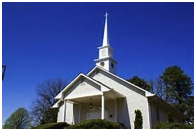 “Congress shall make no law respecting an establishment of religion, or prohibiting the free exercise thereof…” – 1st Amendment
“Congress shall make no law respecting an establishment of religion, or prohibiting the free exercise thereof…” – 1st Amendment “I understand that Christianity is the majority religion. But there are other people who have different religions in this country and around the world. In your judgment, do you think that people who are not Christians are going to be condemned?” * – Sen. Bernie Sanders (I-VT)
“I understand that Christianity is the majority religion. But there are other people who have different religions in this country and around the world. In your judgment, do you think that people who are not Christians are going to be condemned?” * – Sen. Bernie Sanders (I-VT) “Those who accepted his message were baptized…” (Acts 2:41 NIV).
“Those who accepted his message were baptized…” (Acts 2:41 NIV). “They devoted themselves to [I like the King James reading: “They continued steadfastly in”] the apostles’ teaching and to the fellowship, to the breaking of bread and to prayer” (Acts 2:42).
“They devoted themselves to [I like the King James reading: “They continued steadfastly in”] the apostles’ teaching and to the fellowship, to the breaking of bread and to prayer” (Acts 2:42).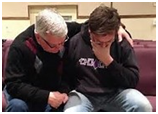 We need to learn the teachings of the apostles, especially when we’re together under the ministry of pastors and teachers (now that the apostles Jesus chose are gone). This means we need to learn the New Testament.
We need to learn the teachings of the apostles, especially when we’re together under the ministry of pastors and teachers (now that the apostles Jesus chose are gone). This means we need to learn the New Testament. Regular, even weekly, participation in Communion (a renewing and nourishing sign of the sacrificial death of Jesus and what it accomplishes for us and in us by faith) is a key part of a good, healthy spiritual walk.
Regular, even weekly, participation in Communion (a renewing and nourishing sign of the sacrificial death of Jesus and what it accomplishes for us and in us by faith) is a key part of a good, healthy spiritual walk.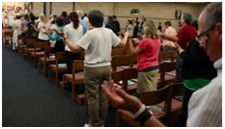 At the very least we must pray together for:
At the very least we must pray together for:



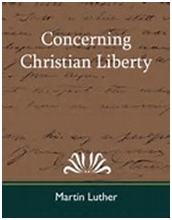

 We don’t have to ask about God’s will in the everyday matters of life. We are free to make our own choices bound only by God’s moral law and principles found in Scripture.
We don’t have to ask about God’s will in the everyday matters of life. We are free to make our own choices bound only by God’s moral law and principles found in Scripture. President Trump’s Executive Order on Religious Liberty and its impact on the “Johnson Amendment”
President Trump’s Executive Order on Religious Liberty and its impact on the “Johnson Amendment”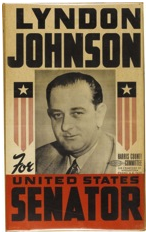 The “Johnson Amendment” forbids tax-exempt churches and other 501(c)3 organizations from endorsing or opposing a candidate for political office. It also forbids these groups from using a “substantial” portion of their resources to influence legislation. “Substantial” may be understood as “more than 5%”, a threshold that only the most politically activist churches would be in danger of crossing.
The “Johnson Amendment” forbids tax-exempt churches and other 501(c)3 organizations from endorsing or opposing a candidate for political office. It also forbids these groups from using a “substantial” portion of their resources to influence legislation. “Substantial” may be understood as “more than 5%”, a threshold that only the most politically activist churches would be in danger of crossing. Good News from Grace
Good News from Grace Don’s Upcoming Ministries
Don’s Upcoming Ministries
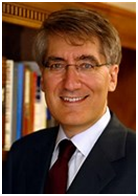
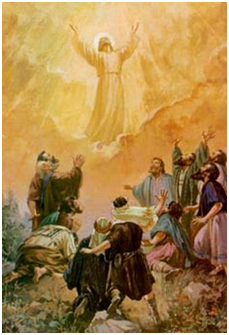 And [Jesus] led them out as far as Bethany, and lifting up his hands he blessed them. While he blessed them, he parted from them and was carried up into heaven. – Luke 24:50-51 (English Standard Version)
And [Jesus] led them out as far as Bethany, and lifting up his hands he blessed them. While he blessed them, he parted from them and was carried up into heaven. – Luke 24:50-51 (English Standard Version)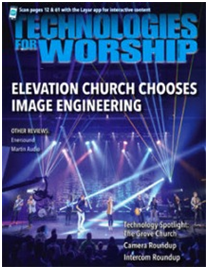 Church of the Immediate Moment”?
Church of the Immediate Moment”? A new law (AB1732) took effect in California on March 1, 2017.
A new law (AB1732) took effect in California on March 1, 2017.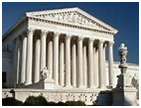 (And should one not believe in God, these words still represent the wisdom of the ages rather than the shifty politics of the moment.)
(And should one not believe in God, these words still represent the wisdom of the ages rather than the shifty politics of the moment.) Jesus was betrayed by his close friend and disciple. He was abandoned by the rest of his disciples. Peter, who most loudly professed loyalty to Jesus, denied him publicly multiple times.
Jesus was betrayed by his close friend and disciple. He was abandoned by the rest of his disciples. Peter, who most loudly professed loyalty to Jesus, denied him publicly multiple times.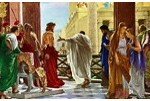 Governor, who in a vile moment of political opportunism sentenced him to death. Pilate—who washed his hands of innocent blood. Pilate—for whom “truth” is what is expedient, not what is right and just and abiding.
Governor, who in a vile moment of political opportunism sentenced him to death. Pilate—who washed his hands of innocent blood. Pilate—for whom “truth” is what is expedient, not what is right and just and abiding.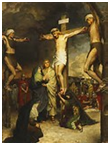 Jesus was put to death by crucifixion—a particularly cruel, agonizing, degrading form of execution.
Jesus was put to death by crucifixion—a particularly cruel, agonizing, degrading form of execution.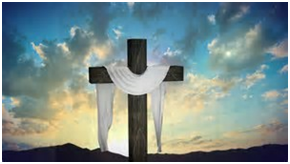 Now, brothers and sisters,
Now, brothers and sisters,